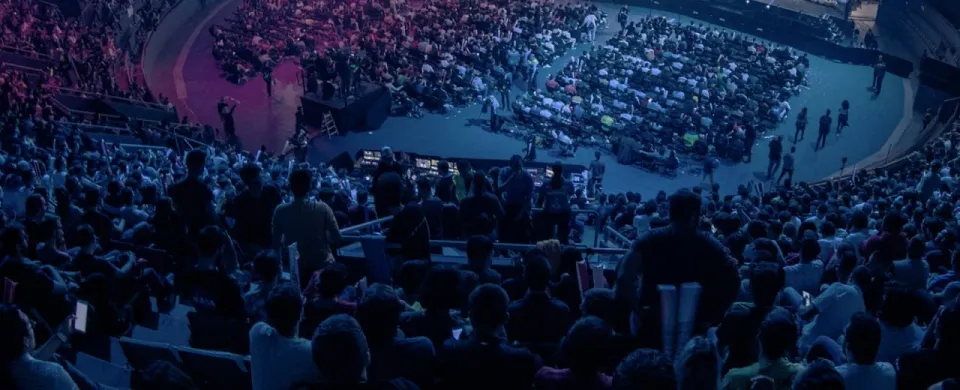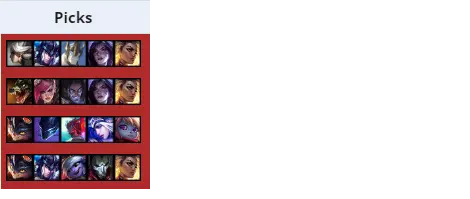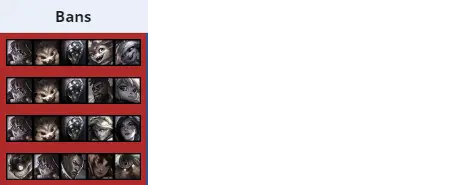- StanDart
Analytics
16:41, 09.10.2024

The Swiss stage of the 2024 League of Legends World Championship was marked by many surprises and stunning results. One of the biggest sensations was the performance of the Chinese team LNG, who passed this stage without a single defeat. This achievement was not only the result of skill and tactical decisions but also a favorable set of circumstances. Let's explore how LNG achieved such an impressive result.
Precise Strategy and Flexibility in Drafts
One of the key factors in LNG's success was their drafts. The team was unafraid to experiment and was always ready to adapt to the strengths of their opponents. LNG showed high flexibility in champion selection, adapting to the specific game and opponents' plans. Their picks often included champions like Rumble and Sejuani, who offer strong zone control and fit well in team fights in the mid and late stages of the game.
Kai'Sa proved to be a versatile choice for the team, used multiple times in crucial matches, demonstrating its prowess as a damage dealer that can easily turn the tide of battles. However, LNG didn't limit themselves to one style — they successfully used other marksmen like Ashe and Jhin, making their lineup less predictable for the opponents.

Smart Bans and Match Preparation
Smart bans played a crucial role in LNG's strategy, used to neutralize the strong picks of their opponents. For instance, against Dplus KIA, champions like Rumble and Renekton were banned, known for their team fight potential. This allowed LNG to effectively contain the opponents’ aggression and build the game according to their plan.
In games against BLG and Team Liquid, bans were focused on controlling champions with high initiation and damage potential, such as Vi, Orianna, and Ahri. Thus, LNG wisely minimized the threat from the opponent's key champions, ensuring more comfortable conditions for playing their game.


Map Control and Macro Play
Besides successful drafts, LNG demonstrated excellent macro play understanding. An important aspect of their strategy was map control and key objectives. Their games ranged from 29 to 39 minutes, indicating that the team didn’t rush for quick victories but preferred careful play with a gradual accumulation of advantage.
LNG effectively utilized the strengths of their composition, especially in the late game, where their team fights involving champions like Rell and Sejuani brought victories at critical moments. This approach allowed the team to maintain map control and deny opponents the chance to make a comeback.
Individual Skills and Team Synergy
LNG also stood out from the competition due to their high level of individual skills. The mechanical prowess of the players helped LNG win challenging fights and turn seemingly lost situations. Their performance on complex champions like Yone and Tristana showed that each player clearly understood their role and could effectively use their abilities in critical situations.
Team synergy played an important role as well — LNG acted cohesively as a unit, displaying excellent coordination in initiating fights, controlling space, and defending key objectives. Using champions like Sejuani and Vi allowed them to manage team fights effectively and initiate crucial battles at critical game moments.
Luck Factor: Opponent Distribution
However, one cannot ignore that luck also played its role in LNG's success. In the early stages of the Swiss round, the team faced opponents against whom they historically had successful results.
- Team Liquid — a team that traditionally struggles against Chinese region representatives. Their playstyle, less aggressive and more dependent on macro play, proved ineffective against the proactive and aggressive LNG.
- Bilibili Gaming (BLG) — another favorable opponent for LNG. Throughout 2024, BLG never defeated LNG, and this psychological burden may have played a role. LNG, in turn, approached the game confidently, which gave them an additional advantage.
- Dplus KIA (DK) — the weakest team in the 2-0 bracket, which also included formidable opponents like Gen G and HLE. DK was not in the best shape, allowing LNG to exploit their vulnerability and secure a victory at this stage.

Gen.G: Challenging Path in Worlds 2024 — How They Overcame the Swiss Stage 3-0
While LNG received a relatively favorable draw, for Gen.G, the path through the Swiss stage was much tougher. They faced two strong teams from the Chinese region — Weibo Gaming and Top Esports — as well as Hanwha Life Esports (HLE), who had recently defeated Gen.G in the LCK summer split finals with a score of 3-2. These opponents posed a far more serious threat to Gen.G, making their 3-0 passage truly impressive.
Unlike LNG, who managed to avoid encounters with more dangerous opponents, Gen.G had to give their all to overcome the resistance of strong teams and take revenge on HLE. This contrast in difficulties between the two teams emphasizes that success in the Swiss stage does not always depend solely on skill but also on whom they have to face along the way.
Tough Opponents on Gen.G's Path
In the Swiss stage, Gen.G faced some of the most dangerous opponents:
- In the first match, their opponent was Weibo Gaming (WBG) — a strong Chinese team with an aggressive playstyle and strong team coordination. WBG often uses a proactive strategy focusing on early skirmishes and objective control, which posed a serious threat to Gen.G.
- In the second match, they faced Top Esports (TES), another powerful Chinese team capable of dominating all game stages. TES is one of the strongest representatives of the LPL, and facing them always carries great risks even for the world's top teams.
- In the third match, Gen.G's opponent was Hanwha Life Esports (HLE) — LCK finalists who had just defeated Gen.G in the summer split finals with a score of 3-2. This match was not just another stage of the World Championship but a chance for Gen.G to take revenge for a recent defeat in their home league.
Thus, Gen.G had to battle three extremely strong opponents, adding even more significance to their success.
Strategy and Perseverance in Drafts Against HLE
The series of games against Hanwha Life Esports was particularly interesting. Gen.G made a bold decision to repeatedly choose the combination of Ahri, Nocturne, and Aurora as the core of their strategy. Despite losing the first match against HLE, they did not abandon this choice, maintaining confidence in their strategy and continuing with the same picks in the next two games. This step demonstrated both the team's perseverance and their confidence in the chosen strategy.
- Nocturne in the hands of Gen.G served as an important tool for global map control and isolating key targets. His ultimate ability allowed generating pressure on lines and quickly initiating fights.
- Ahri, with her mobility and pickoff capabilities, was perfectly suited for creating advantages in early and mid-game skirmishes. Her ability to control the battlefield and deal damage from a safe distance made her a crucial element of Gen.G's strategy.
- Aurora, alongside other key picks, helped Gen.G keep opponents at bay and initiate fights at the right moments.

This persistent approach was rewarded when Gen.G managed to secure victories on the second and third maps despite losing the first game. They not only upheld their strategy but also proved their ability to adapt to changes throughout the series.

Macro Play and Match Adaptation
As in previous games, Gen.G demonstrated high mastery in macro play and map control. In the game against Weibo Gaming, lasting 45 minutes, they displayed patience and the ability to manage critical game moments. Despite WBG's aggressive picks, such as Lucian, Jinx, and Blitzcrank, Gen.G managed to stabilize the game in the late stage and secure key objectives.

Against Top Esports, Gen.G demonstrated an excellent understanding of draft and strategy, focusing on map control through champions like Maokai and Gnar, which allowed them to dominate team fights. Despite their strength, TES could not break through Gen.G's well-structured defense, built on constant vision control and correct decisions in fight initiation.

Analysis of Successful Bans
As with LNG, bans played an important role in Gen.G's success. Against Hanwha Life Esports, they aimed to exclude champions that could disrupt their strategy: Kalista, Ashe, and Ziggs were banned to reduce lane pressure and control in team fights. This approach allowed Gen.G to better control the early game and neutralize HLE's aggression.
In games against Top Esports, the bans were also targeted to exclude aggressive initiators like Ivern and Nocturne, which could create problems early in the game. This thoughtful approach to bans allowed Gen.G to stabilize the game and begin it on their terms.
Gen.G's path through the Swiss stage without defeats is a testament not only to their strategies and mechanical skills but also to their ability to overcome challenges. Unlike LNG, who had more convenient opponents, Gen.G had to battle against the world's top teams, including two Chinese powerhouses and the finalists of their own league.
Nevertheless, perseverance, the ability to adapt to setbacks, and well-thought-out drafts allowed Gen.G to tackle challenges and emerge victorious even in tough situations. Their series against Hanwha Life Esports demonstrated that the team is ready to learn from mistakes and evolve their strategies throughout the tournament. Now that the Swiss stage is complete, Gen.G is prepared for new challenges on their way to the Worlds 2024 finals, and their fans can be confident that the team is in excellent shape to compete for the championship.
Upcoming Top Matches
Latest top news







Comments